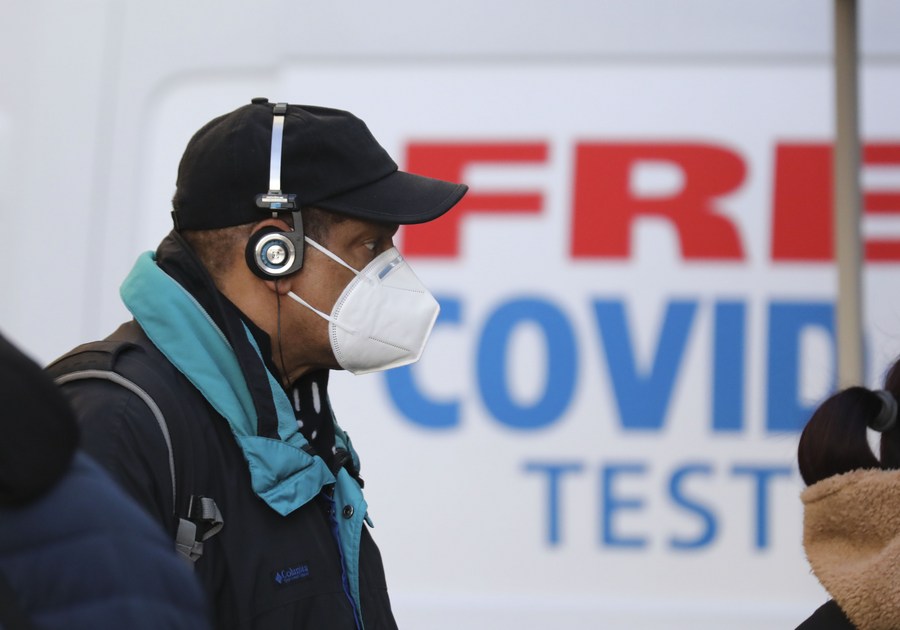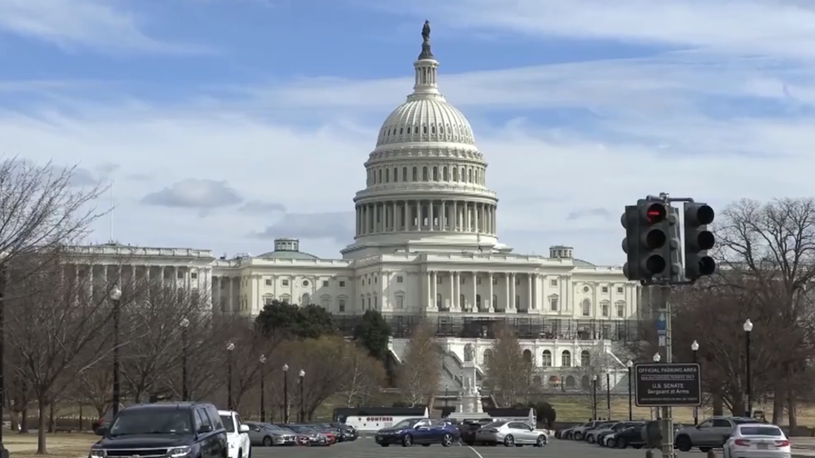
A man visits the National Mall in Washington, D.C., the United States, Jan. 17, 2022. (Photo by Ting Shen/Xinhua)
"Much of the withheld information could help state and local health officials better target their efforts to bring the virus under control," read a report by The New York Times.
NEW YORK, Feb. 21 (Xinhua) -- For more than a year, the U.S. Centers for Disease Control and Prevention (CDC) has collected data on hospitalizations for COVID-19 across the country and broken it down by age, race and vaccination status, but it has not made most of the information public, The New York Times reported.
When the CDC published the first significant data on the effectiveness of boosters in adults younger than 65 two weeks ago, it left out the numbers for a huge portion of that population: 18- to 49-year-olds, the group least likely to benefit from extra shots, because the first two doses already left them well-protected, said the report on Sunday.

A man wearing a face mask walks on a street in Manhattan of New York, the United States, Jan. 19, 2022. (Xinhua/Wang Ying)
The agency recently debuted a dashboard of wastewater data on its website that will be updated daily and might provide early signals of an upcoming surge of COVID-19 cases. Some states and localities had been sharing wastewater information with the agency since the start of the pandemic, but the CDC had never before released those findings.
"Two full years into the pandemic, the agency leading the country's response to the public health emergency has published only a tiny fraction of the data it has collected," the newspaper quoted several people familiar with the data as saying.

Medical workers carry a patient to a hospital in New York, the United States, Dec. 13, 2021. (Xinhua/Wang Ying)
"Much of the withheld information could help state and local health officials better target their efforts to bring the virus under control," said the report, noting that detailed, timely data on hospitalizations by age and race would help health officials identify and help the populations at highest risk.
Information on hospitalizations and deaths by age and vaccination status would have helped inform whether healthy adults needed booster shots, and wastewater surveillance across the nation would spot outbreaks and emerging variants early, it added. ■












